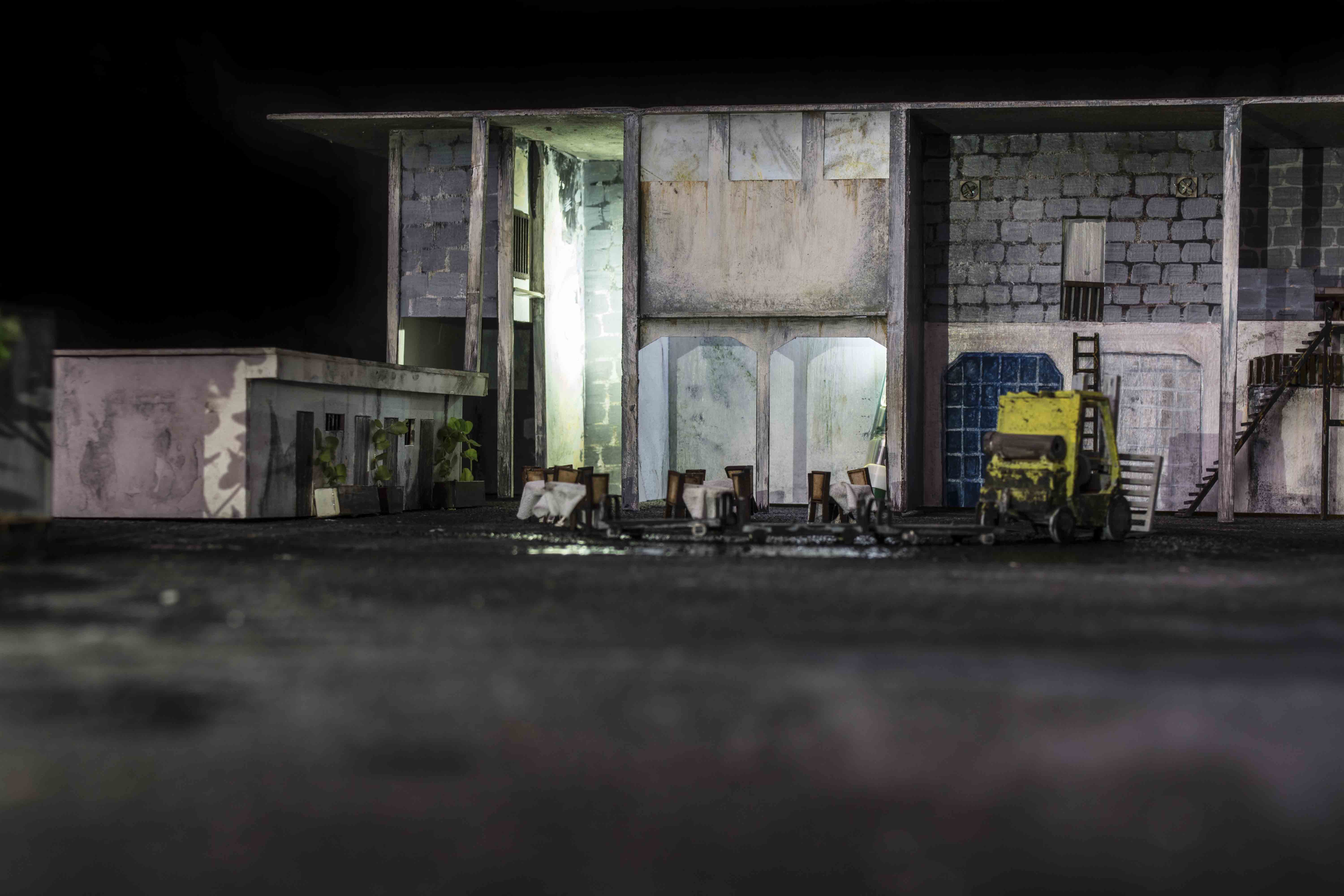Rhinoceros is a play by Eugène Ionesco, written in 1959.
Throughout three acts, the inhabitants of a small French provincial town turn into rhinoceroses; ultimately, the only human who does not succumb to this mass metamorphosis is the central character, Bérenger. The play is often read as a response and criticism to the sudden upsurge of Fascism and Nazism during World War II and explores the themes of conformity, culture, fascism, responsibility, logic, mass movements, mob mentality, philosophy, and morality.
Rhinoceros by Eugène Ionesco
Scenography concept
United Arab Industrial Company, Damascus, Syria
Autumn 2014
United Arab Industrial Company, Damascus, Syria
Autumn 2014

The scenography concept developed to occur in the United Arab Industrial Company, owned by the Syrian regime. The textiles factory as a micro cosmo corresponds to the propaganda knitting and hyper normalization that happens under precise systems where every role is strictly defined to produce. All material and props were from the site.
The rhinoceros characters from the play are dogmatic, and from there comes the representations of the costumes by mimicking different radical groups in their appearance. The characters transform into radicals of the world instead of converting to rhinoceros as an appropriation to here/now dramaturgy.














